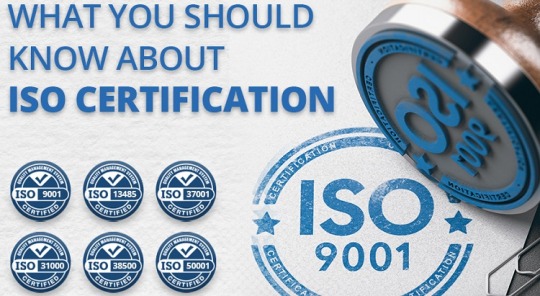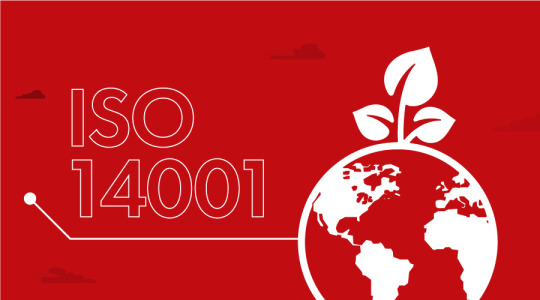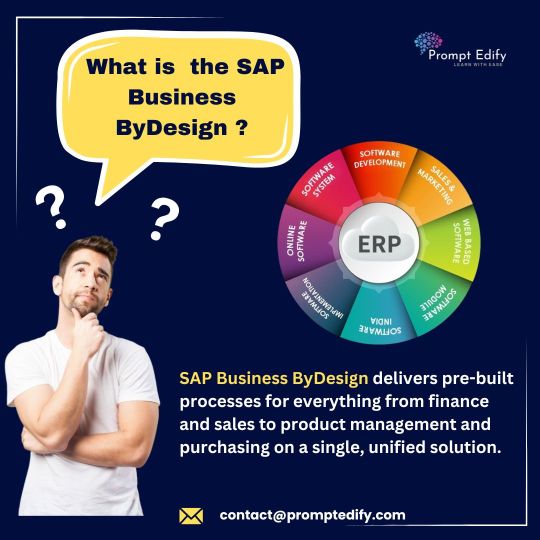#certification consultancy
Explore tagged Tumblr posts
Text
#iso 9001#iso 45001#iso certificate online#iso certification#ganesh chaturthi#lord ganesh#iso certified company#certification consultancy#iso certification bangalore
0 notes
Text
A quality management system (QMS) is required for ISO 9001 compliance. It is also critical to audit this system to ensure that it is having the desired effect. An internal quality audit reviews the QMS to verify that its goals are met and that the firm has ISO 9001 certification. ISO 9001 is the most widely accepted Quality Management System (QMS) standard in the world. Its goal is to assist enterprises in more successfully meeting the needs of their consumers and other stakeholders. This is accomplished by erecting a framework to assure constant quality in the provision of goods and/or services.
#ISO 9001#ISO 9001 Manual#ISO 9001 certification#ISO 9001 documents#ISO 9001 procedures#QMS#ISO 9001 Quality management system#certification consultancy
0 notes
Note
Kon's kid absolutely has to be taller than Tim. Bernard's daughter should be, too, tbh, but at least Kon's daughter.
Currently both kids are only 8 and 4 years old so they're not taller then Tim yet but once they hit that first growth spurt - speaking of the poll for their names ended so here they both are


#ask#anon#dc#dc comics#batman#tim drake#babybat jason au#yepp martha and Janet won#which honestly was quiet surprised at#its funny tho#gives very#tim went rouge with the birth certificates#and chose the names without really consulting Bernard or kon
671 notes
·
View notes
Text
yukiKOOOOOOOOO!! god rank 2. i want that job licence for you so much, i want you to find your agency and independence so fucking bad i’m sorry you’re in persona 4
#i want her learn a trade#i want her to gain experience as a farmhand through connections to the inns produce suppliers#i want her to take a certification course#i want her to get a heavy vehichles license#i want her to take some college courses on the side of a part time job#i want her to travel japan as managerial consultant for other ryokan#i want her to join the fucking circus why not#i want her to study overseas#girl. i’m so sorry you’re in persona 4#rambles#p4g posting
23 notes
·
View notes
Text
name and gender marker change done 🎉
#just gotta wait for my new birth certificate in the mail then i can get a new id etc#not fandom related#personal log stardate#trans stuff#also im 10 mo on T 😌#top surgery consult tmr let's see how that goes. idk anything abt the surgeon except that they offer top surgery for trans ppl#and they're a plastic surgeon. but no reviews or pics anywhere so let's see
3 notes
·
View notes
Text
Benefits of ISO 9001 Certification Implementation

ISO 9001 Implementation : A Blueprint for Quality Excellence
What is ISO 9001?
ISO 9001 is an internationally recognized standard that provides a framework for quality management systems (QMS). It outlines the requirements for a company to ensure that its products and services consistently meet customer expectations. By implementing ISO 9001, organizations demonstrate their commitment to quality and customer satisfaction.
Why is ISO 9001 Important?
Enhanced Customer Satisfaction: ISO 9001 focuses on understanding and meeting customer needs. By implementing a QMS, organizations can improve their products and services, leading to increased customer satisfaction.
Improved Efficiency and Productivity: ISO 9001 promotes process efficiency and reduces waste. This can lead to increased productivity and cost savings.
Enhanced Reputation: Organizations certified to ISO 9001 demonstrate their commitment to quality. This can enhance their reputation and attract more customers and business partners.
Increased Market Access: Many industries require ISO 9001 certification for suppliers. By obtaining certification, organizations can expand their market reach.
Continuous Improvement: ISO 9001 emphasizes continuous improvement. This means that organizations are always looking for ways to enhance their processes and products.
Key Principles of ISO 9001
Customer Focus: Understanding and meeting customer requirements.
Leadership: Strong leadership is essential for implementing and maintaining a QMS.
Involvement of People: All employees should be involved in the QMS and empowered to contribute to its success.
Process Approach: Managing activities as interrelated processes.
System Approach to Management: Integrating and managing processes as a system.
Continuous Improvement: Constantly seeking to improve performance.
Evidence-Based Decision Making: Making decisions based on data and evidence.
Relationship Management: Managing relationships with external providers.
Benefits of ISO 9001 Certification
Increased Efficiency and Productivity: Streamlining processes and reducing waste.
Improved Quality: Ensuring products and services consistently meet customer expectations.
Enhanced Customer Satisfaction: Building stronger relationships with customers.
Boosted Reputation: Enhancing credibility and trust.
Increased Market Access: Expanding business opportunities.
Reduced Costs: Identifying and eliminating inefficiencies.
The Certification Process
Gap Assessment: Identifying the gap between current practices and ISO 9001 requirements.
Documentation: Developing and implementing a QMS that meets ISO 9001 standards.
Internal Audits: Conducting regular internal audits to ensure compliance.
Certification Audit: Undergoing an external audit by a certified certification body.
Maintenance: Continuously improving the QMS and maintaining certification.
Conclusion
ISO 9001 is a valuable tool for organizations that want to improve their quality, efficiency, and customer satisfaction. By implementing a QMS, organizations can gain a competitive advantage and achieve long-term success.
Would you like to know more about the specific requirements of ISO 9001 or the certification process?
#iso certificate management#iso management#iso design consultant#iso implementation pretoria#iso consultant pretoria
2 notes
·
View notes
Text
#ISO 27001 Certification#ISO 27001 Course#ISO 27001 Training#ISO 27001#iso 27001 audit#course#training#professional#online#iso 27001 consultants#iso 27001 compliance
2 notes
·
View notes
Text
Achieving Environmental Excellence: A Comprehensive Guide to ISO 14001 Certification

In an era where environmental concerns dominate public discourse, businesses face increasing pressure to adopt sustainable practices. Climate change, resource depletion, and pollution are not just abstract concepts; they have real-world implications for both society and business operations. Consequently, organizations are recognizing the necessity of implementing effective Environmental Management Systems (EMS) to manage their environmental responsibilities. This is where the ISO 14001 Standard comes into play.
ISO 14001 is a globally recognized standard that provides a framework for organizations to manage their environmental impacts systematically. By achieving ISO 14001 certification, businesses not only comply with regulations but also demonstrate their commitment to sustainability, enhancing their reputation and competitiveness in the marketplace. As a leading consulting company with extensive experience in ISO standards, 4C Consulting Private Limited has successfully helped over 2,500+ clients implement ISO standards, with more than 15,000 hours dedicated to ISO training.
What is the ISO 14001 Standard?
The ISO 14001 Standard is part of the ISO 14000 family of standards focused on environmental management. It establishes the criteria for an effective EMS and is applicable to any organization, regardless of its size or sector. The standard encourages organizations to adopt a systematic approach to managing environmental responsibilities, allowing them to identify, control, and improve their environmental performance.
Central to ISO 14001 is the Plan-Do-Check-Act (PDCA) model, which promotes continuous improvement. This cyclical process enables organizations to set environmental objectives, implement processes to achieve these objectives, monitor progress, and make necessary adjustments based on performance evaluations.
Why is the ISO 14001 Standard Needed?
The need for the ISO 14001 Standard is underscored by several compelling factors:
Regulatory Compliance: Environmental regulations are becoming increasingly stringent worldwide. Implementing ISO 14001 helps organizations comply with relevant laws, reducing the risk of legal penalties and reputational damage.
Risk Management: By identifying and managing environmental risks, organizations can prevent incidents that may harm the environment and incur significant costs. An effective EMS allows businesses to proactively address potential environmental issues before they escalate.
Stakeholder Expectations: Investors, customers, and the public are increasingly prioritizing sustainability. ISO 14001 certification signals a commitment to environmental responsibility, enhancing credibility and trust with stakeholders.
Market Differentiation: In competitive markets, organizations that demonstrate a commitment to sustainable practices stand out. ISO 14001 certification can serve as a valuable marketing tool, attracting environmentally-conscious customers.
Continuous Improvement: ISO 14001 promotes a culture of continuous improvement, encouraging organizations to regularly assess and enhance their environmental performance.
How to Implement the ISO 14001 Standard
Implementing the ISO 14001 Standard requires a structured and strategic approach. Here are the key steps involved in the ISO 14001 implementation process:
Obtain Management Support: Gaining commitment from top management is crucial for the successful implementation of ISO 14001. Leaders must recognize the importance of environmental management and allocate necessary resources to support the process.
Conduct a Gap Analysis: Assess current environmental management practices against the requirements of ISO 14001. This gap analysis helps identify areas that need improvement and establishes a baseline for the implementation process.
Develop an ISO 14001 Manual: Create an ISO 14001 manual that outlines the organization’s environmental policies, objectives, and procedures. This manual serves as a guiding framework for the EMS and ensures that everyone in the organization is aligned with its goals.
Set Environmental Objectives: Establish clear, measurable environmental objectives that align with the organization’s overall strategic goals. These objectives should be based on the results of the gap analysis and stakeholder expectations.
Implement Processes: Develop and implement processes to achieve the established objectives. This may involve training employees, enhancing operational practices, and adopting sustainable technologies that minimize environmental impact.
Monitor and Measure Performance: Regularly monitor environmental performance against the set objectives. Utilize key performance indicators (KPIs) to track progress and identify areas for improvement.
Conduct Internal Audits: Perform internal audits to assess the effectiveness of the EMS. This helps identify non-conformities and opportunities for improvement, ensuring the organization remains compliant with ISO 14001 requirements.
Management Review: Conduct periodic management reviews to evaluate the EMS’s performance and make informed decisions regarding necessary changes or improvements.
Continual Improvement: Foster a culture of continuous improvement by regularly reviewing and updating processes based on audit findings and performance evaluations.
Benefits of ISO 14001 Implementation
Implementing the ISO 14001 Standard offers numerous benefits, including:
Enhanced Environmental Performance: Organizations can significantly reduce their environmental impact, leading to improved sustainability and compliance with regulations.
Cost Savings: By identifying inefficiencies and waste, businesses can reduce operational costs and improve resource utilization, resulting in substantial financial savings.
Improved Stakeholder Relationships: Certification enhances credibility with customers, investors, and regulators, fostering trust and loyalty. It demonstrates a commitment to responsible business practices.
Increased Employee Engagement: A robust EMS creates a culture of environmental responsibility, motivating employees to contribute to sustainability efforts and enhancing overall job satisfaction.
Competitive Advantage: Organizations that achieve ISO 14001 certification can differentiate themselves in the marketplace, appealing to environmentally-conscious customers and improving their market position.
Risk Reduction: Proactively managing environmental risks minimizes the potential for incidents that could lead to legal liabilities or reputational damage, safeguarding the organization’s long-term viability.
How 4C Consulting Can Help You Implement ISO 14001
At 4C Consulting, we specialize in providing expert guidance for organizations seeking ISO 14001 certification. Our extensive experience and commitment to excellence make us the ideal partner for your ISO 14001 implementation journey. With over 15,000 hours of ISO training and a proven track record of assisting more than 2,500 clients, our team is well-equipped to support you every step of the way.
Our comprehensive services include:
ISO 14001 Consulting: We offer tailored consulting services to help you navigate the complexities of ISO 14001 implementation. Our consultants work closely with your team to develop and implement effective EMS processes tailored to your organization’s needs.
ISO 14001 Training: We provide in-depth training programs designed to educate your employees about ISO 14001 requirements. Our training equips your team with the knowledge and skills necessary to contribute effectively to the EMS.
Gap Analysis and Planning: Our experts conduct thorough gap analyses to identify areas for improvement and develop actionable plans for compliance with ISO 14001.
Ongoing Support: We offer continuous support throughout the implementation process and beyond, ensuring your organization remains compliant and continuously improves its environmental performance.
#ISO 14001 Implementation#ISO 14001 manual#ISO 14001 certification#ISO 14001 Consulting#ISO 14001 Training#ISO 14001 Audits#ISO 14001 Standard Requirements
2 notes
·
View notes
Text
Weekly Astrology December 16-22 and Solstice
Nicer aspects this week and we are getting ready for Winter Solstice on December 21 at 1:21 am PST, 4:21 am EST, 9:21 am GMT. Moon’s in Cancer on Monday which is the Moon;s day, Cancer is the Moon ‘s ruling sign where it’s most at home, bringing up all the feels, crying is easy, sentimentality is strong, nurturing, caring, feeding comfort foods, and upset tummies feature. You need to find family…
#Astrology psychic Tarot card reader Tara Greene#astrology workshops Tara Greene Toronto#Canada&039;s 1 Psychic Voted and Certified Psychic#corporate and media psychic tarot reader astrologer#corporate astrology Tarot consultant Tara Greene#Cosmic Inteligence Agency#Gift Certificates for Astrology and tarot lovers#live event#psychic spiritual consultant Tara Greene Toronto#solstice celebration#Tara Greene women&039;s spirituality workshops
1 note
·
View note
Text
WHY DO WE NEED ISO 9001 CERTIFICATION (QUALITY MANAGEMENT SYSTEM)?
ISO 9001 is a standard that is recognized worldwide, we can say that ISO 9001 certification is quite a famous standard and organizations try to achieve ISO 9001 certificate to join in the race for a globally competitive market.
If your organization achieves an ISO 9001 quality management system certificate, then it is like demonstrating your commitment to envisioning a quality culture.
By implementing an ISO 9001 standard in organizations, we can have better-organized process control and transparency in all departments.
Quality is a culture that must be developed and not a product that can be bought, since with the help of the guidelines of this international standard, organizations can learn the objective of developing quality as a culture.
4 notes
·
View notes
Text

Comprehensive SAP Business ByDesign Training: Join Prompt Edify's dynamic training program in Mozambique, designed to equip professionals with the essential skills to leverage SAP Business ByDesign effectively.
Expert-Led Sessions: Learn from seasoned instructors who bring real-world experience and in-depth knowledge to every session, ensuring you grasp the intricacies of SAP's powerful business management solution.
Tailored Curriculum: Our training is structured to meet the diverse needs of learners, covering everything from core functionalities to advanced features, ensuring you gain a holistic understanding of SAP Business ByDesign.
Hands-On Learning: Dive into practical exercises and simulations that replicate real-world scenarios, allowing you to apply theoretical concepts directly to your business environment.
Interactive Learning Environment: Engage in collaborative discussions, Q&A sessions, and group activities that foster a dynamic learning atmosphere, enabling you to learn from peers and industry experts alike.
Flexible Training Options: Choose from flexible training schedules to accommodate your busy lifestyle or organizational requirements, whether you prefer weekday classes or weekend sessions.
Certification Preparation: Prepare for SAP Business ByDesign certification exams with confidence, as our training program aligns with industry standards and equips you with the knowledge needed to excel.
Career Advancement Opportunities: Enhance your professional profile and career prospects with SAP Business ByDesign certification, demonstrating your expertise and proficiency in one of the leading ERP solutions.
Convenient Location: Located in Mozambique, our training center offers a convenient location for professionals across the region, minimizing travel time and maximizing learning efficiency.
Unlock Business Potential: Gain the skills and insights needed to unlock the full potential of SAP Business ByDesign, empowering your organization to streamline operations, drive growth, and stay competitive in today's dynamic market.
Enroll in SAP Business ByDesign training at Prompt Edify in Mozambique today and take the first step towards mastering this transformative business solution!
📱 (+91) 99932 86938 📧 [email protected] 🌐 www.promptedify.com 🔗 You can chat with us on WhatsApp 📑 Book your spot now👉 Register Now
#sap certification#sap online training#sap modules#sap course#sap_certification#sapconsultant#sap consulting services#career in sap
2 notes
·
View notes
Text

🎉 Heartiest Congratulations to D Gukesh! 🎉
At just 18 years old, Indian chess prodigy D Gukesh has made history by clinching the World Chess Championship title, defeating Ding Liren in Singapore! 🏆♟️
Your incredible achievement inspires millions and showcases the brilliance of determination, strategy, and talent. 🌟
From all of us at QCertify Global, we celebrate your journey and this historic milestone. You have made India proud! 💪
👏 Bravo, Champion! 👏
#Dgukesh#WorldChessChampion#YoungAchiever#PrideOfIndia#QCertifyGlobal#Congratulations
#iso 9001#iso 45001#iso certification#iso certificate online#iso certified company#iso 27001 certification#iso certification bangalore#iso 27001 consultants#iso 27001 audit#iso 27001 training#chess#world chess championship#d gukesh
2 notes
·
View notes
Text
https://ayurvedaacharya.com/
#ayurvedic lifestyle consultant certification online#ayurvedic lifestyle consultant course#ayurveda immunology class online#clinical immunology course in ayurveda#certificate course in ayurvedic cosmetology#cosmetology courses in ayurveda
2 notes
·
View notes
Text
FSC Certification in Developing Countries: Empowering Local Communities

The forests are the most treasured assets of the planet, and contribute to the biodiversity of our planet, clean air, and climate control.��In countries that are developing, the natural wonders of nature typically play a vital role in providing sources of income and resources for communities living in the area. However, the misuse of forests that are not properly managed, and sustainable practices could cause environmental damage and financial instability.
Here is the point where FSC Certification comes in, not only to help protect our forests but also help local communities in emerging nations.
Importance of FSC Certification
It is the FSC Certification is a worldwide-acknowledged quality standard for sustainable and responsible forest practices. It establishes rigorous standards for managing forests, making sure that social, environmental and economic considerations are and integrated. Although FSC certification is typically associated with developed countries, but its impact on developing nations is just as important and, in some cases, even more.
Preserving Biodiversity
Forests in developing nations are usually filled with biodiversity, and are home to rare and endangered species. FSC Certification puts a heavy importance on the conservation of these vital ecosystems. By following FSC standards, local communities are able to conserve their native flora as well as fauna, while preserving biodiversity for the next generation. This does not only protect the environment but also assists in the growth of ecotourism, which could bring additional income to the local community.
Economic Opportunities for Local Communities
In many developing nations forest-related activities are the foundation of local economy. FSC certification supports sustainable harvesting practices that help to ensure long-term health of the forest, and ensures an economic stability for the communities. Through the application of Forest Stewardship Council Certification guidelines local communities are able to maintain an income stream that is constant which reduces their exposure to changes in the global market. This helps alleviate poverty, but also increases living standards of people in the community.
Community Ownership and Management
One of the fundamental tenets that underpins FSC Certification is participation of the community and ownership of forest operations. The certification gives local communities control over how they manage their forest, which gives them the sense of ownership and accountability. Through active participation in the decision-making process, communities can safeguard their rights and ensure that their resources are being used sustainably. FSC certification gives communities the ability to benefit of their forest resources, which puts them in charge of their future.
Education and Capacity Building
FSC Certification is a way to promote educational and capacity-building programs in the local community. The programs are designed to equip members of communities with the skills and knowledge required to implement sustainable forestry practices efficiently. The training in areas like conservation, forest management and business development enables individuals to be in control of their resources and the future of their communities. As they gain more knowledge regarding sustainable methods, they will be able to make educated decisions that have a positive impact on the environment and their personal health and well-being.
Market Access and Premium Prices
FSC-certified products typically fetch high prices on international markets. This creates a powerful incentive for communities in the developing world to invest in forestry that is sustainable practices. If they follow FSC Certification Consulting ideas, they have access to market segments that are based on sustainability. This can dramatically increase their earnings. The ability to charge more for their goods will not only boost the local economy, but also rewards the ongoing adherence to ethical methods.
Case Studies: Success Stories
A number of success stories from developing nations illustrate the transformational effect on the world by FSC accreditation on communities in the local.
For instance, Brazilian nuts harvesters who live within the heart of Amazon rainforest have accepted FSC standards, ensuring their livelihoods as well as the ecosystem. Through implementing sustainable methods of harvesting and actively assisting in the management of their resources, they've ensured their future economic security while also ensuring the sustainability for one of our largest ecosystems.
Within Africa, FSC has allowed local communities to effectively manage and harvest wood resources. By adopting responsible practices, they are able to preserve their natural resources and boost economic development. This way, FSC certification offers a win-win situation that benefits both the environment and the local community.
Challenges and Future Directions
Although FSC certification has led to positive developments, but it's not without difficulties. In some countries in the developing world in particular, the limited resources, a lack of understanding and bureaucratic barriers could hinder the application and implementation of FSC Certification Services for FSC standards.
But, many organizations, governments as well as NGOs are becoming aware of the importance of FSC certification and making efforts to overcome these issues. They're offering support and resources to assist communities to navigate this certification procedure and gain the advantages.
In the near future, the growth of FSC to developing countries is a great opportunity. If more and more local communities embrace sustainable forest practices and practices, the positive effects on their environment as well as their socio-economic circumstances will continue to increase. International collaboration and investments in capacity-building initiatives can help local communities be stewards of their forests and facilitators of positive change.
Conclusion
FSC Certification isn't only about protecting the environment, it's about helping communities in the developing world. It is a sustainable route for communities to safeguard its natural assets, develop opportunities for economic growth, and take greater control over their lives. If they follow FSC standards and practices, communities can safeguard their future and protect forest resources that are vital to their wellbeing.
The successes of communities certified by FSC in the developing world are a testimony to the efficacy of this international standard in encouraging responsible forestry practices and strengthening them all over the world.
#FSC Certification in UAE#Forest Stewardship Council Certification#FSC Certification Consulting#FSC Certification Services
2 notes
·
View notes
Text
How to apply for ISO 9001 Certification in Canada

How to apply for ISO 9001 Certification in Canada
How does ISO 9001 Certification work?
There are four stages in the ISO 9001 audit process:
Pre-assessment meeting and audit preparation
Conducting the ISO 9001 Certification Audit
Meeting to discuss assessment results
Re-certification preparations
Certification Consultants in Canada
To implement ISO 9001 Certification in Canada, organizations need a process-oriented quality management system tailored to their specific requirements. ISO 9001 certification in Canada can improve communication, reduce costs, optimize processes, and more for your organization.
ISO 9001 Certification in Canada Requirements
When a company achieves ISO 9001 certification in Canada, they are expected to have established quality policies, processes, responsibility assignments, roles, and responsibilities. An International Organization for Standardization quality management system procedures are covered by ISO 9001 certification in Canada. Certification bodies also conduct ISO audits to ensure that companies comply with ISO standards. ISO 45001 certification in Canada
According to ISO, an ISO-approved auditor creates, implements, and audits a quality management system (QMS) as part of ISO 9001 certification. Getting ISO 9001 certification in Canada may require a lot of paperwork, and an auditor may make suggestions. The documentation for ISO audits should be in place for organizations ready to implement ISO 9001 in Canada.
ISO 9001 Certification in Canada Audits Online
Using an online web testing platform, IAS conducts ISO 9001 certification audits. Behind the audit, IAS issued a certificate proving your company has been certified to ISO 9001 in Canada based on several criteria, including the online test scenarios for your system documentation, the testing of all policies, and other related ISO 9001 certification procedures. You can implement ISO 9001 in Canada much more quickly with remote audits from IAS. ISO Certification Bodies in Canada
ISO 9001 Certification in Canada available ?
Any organization can achieve ISO 9001 certification in Canada, regardless of its size, type, or field of operation, if they want to improve their QMS performance systematically. Several businesses in Canada can obtain ISO 9001 certification, including:
Corporate Institutions
Construction Companies
Production/Manufacturing Companies
Hospitals
Banks
Institutions of higher learning
Governmental Organizations
For more information visit: ISO certification in Canada
3 notes
·
View notes
Text
Learn what are the Five ISO 27001 implementation consulting certifications you need to become an information security management system professional. Read now! https://quality-assurance.com.au/blog/what-is-the-role-of-the-iso-27001-implementation-consulting-certification/
2 notes
·
View notes